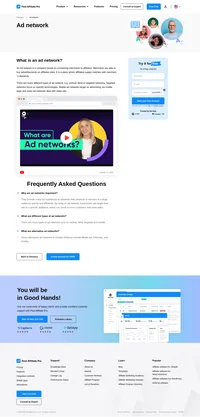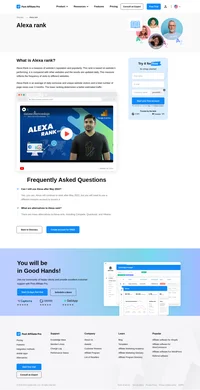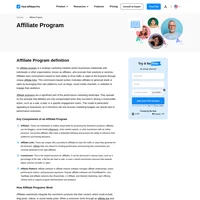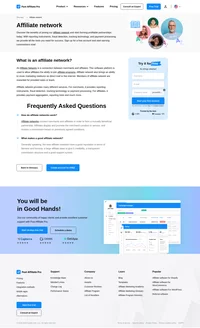What is PageRank?
PageRank is a mathematical algorithm developed by Google co-founders Larry Page and Sergey Brin in 1996 during a research project at Stanford University. It is designed to evaluate the importance of web pages based on the quantity and quality of links pointing to them. This algorithm significantly influenced how web pages are ranked in Google’s search engine results, making it a foundational concept in search engine optimization (SEO).
The PageRank algorithm assesses the importance of a web page by considering each link to a page as a “vote” for that page, indicating its significance. However, not all votes are equal. Links from pages that are themselves highly ranked are weighted more heavily, passing more “link juice” to the pages they link to.

Historical Context and Evolution
Originally, PageRank was the primary factor in Google’s ranking algorithm, but as web practices changed, Google introduced additional factors and algorithms to enhance search quality, such as TrustRank and the E-E-A-T principles (Experience, Expertise, Authoritativeness, Trustworthiness).
The algorithm has evolved significantly over time, with Google no longer publicly displaying PageRank scores, although the concept remains an essential part of Google’s ranking system. The Google Toolbar, which used to display PageRank scores, was retired in 2016 due to misuse and overemphasis on this single metric by SEO practitioners.
How Does PageRank Work?
PageRank operates by analyzing the web’s link structure to determine the relative importance of web pages.
The PageRank Formula
The original PageRank formula is expressed as:
[PR(A) = (1-d) + d \PR(T1)C(T1) + PR(T2)C(T2) + PR(Tn)C(Tn))]
- PR(A): The PageRank of page A.
- d: Damping factor, usually set to 0.85, representing the probability that a user will continue clicking on links.
- T1…Tn: Pages linking to page A.
- C(Tn): The number of outbound links on page Tn.
This formula demonstrates how PageRank is distributed across web pages, with each page receiving a portion of the PageRank of the pages that link to it. The algorithm uses a logarithmic scale, meaning each incremental increase represents a significant increase in importance.
The Damping Factor
The damping factor is an integral part of the PageRank formula, simulating the likelihood of a user stopping their link-clicking journey. It’s typically set at 0.85, meaning there’s a 15% chance that a user will stop clicking links at any given point. This factor helps distribute PageRank more evenly across the web and prevents the accumulation of excessive rank in isolated areas.
Why Does PageRank Matter?
PageRank has been instrumental in shaping the early landscape of SEO and continues to influence modern search engine algorithms. Although Google no longer publicly displays PageRank scores, understanding the concept is crucial for optimizing link structures within websites.
Impact on SEO
- Backlink Quality Over Quantity: PageRank emphasizes the quality of links over sheer quantity. Links from authoritative, high-PageRank sites are more valuable.
- Link Building Strategies: Effective SEO practices include acquiring backlinks from reputable sites, using strategic anchor text, and ensuring a natural link profile to avoid penalties.
- Internal Linking: Optimizing internal links can enhance PageRank flow within a site, boosting the visibility of important pages.
- Influence on Search Rankings: While PageRank is not the sole determinant of search rankings, it remains a component of Google’s complex ranking algorithms, playing a role in a site’s visibility in search results.
PageRank and Affiliate Marketing
In the context of affiliate marketing, understanding PageRank can help marketers optimize their strategies for better search engine visibility. Here’s how:
- Link Quality for Affiliate Sites: Ensuring that affiliate links come from high-authority pages can enhance the perceived value and rankings of the linked pages, potentially driving more traffic and conversions.
- Content Strategy: Creating valuable content that naturally attracts high-quality backlinks can improve PageRank, thereby increasing the affiliate site’s authority and search engine rankings.
- Avoiding Link Spam: Affiliate marketers should avoid manipulative link-building tactics that could result in penalties, focusing instead on organic, quality-driven link acquisition.
The Evolution of PageRank
Since its inception, PageRank has evolved significantly. Originally, it was the primary factor in Google’s ranking algorithm. However, as web practices changed, Google introduced additional factors and algorithms to enhance search quality, such as TrustRank and the E-E-A-T (Experience, Expertise, Authoritativeness, Trustworthiness) principles.
Changes Over Time
- Toolbar PageRank: Once publicly displayed through the Google Toolbar, PageRank scores are no longer visible, reducing the emphasis on PageRank alone as a metric.
- Algorithm Updates: Google’s algorithms now incorporate numerous factors beyond PageRank, including content relevance, user experience, and mobile-friendliness.
- Spam Mitigation: Google has implemented measures to combat link spam, such as the introduction of the nofollow attribute and the Penguin algorithm, which devalues spammy links.
Recent Developments
Recent insights from the 2024 Google algorithm leak reveal that Google employs multiple types of PageRank, each serving a unique purpose within its ranking framework. For example, PageRank_NS (Nearest Seed) is a modified version that focuses on document understanding and clustering, helping Google assess page relevance within specific content clusters.

Frequently Asked Questions
How does Google PageRank work?
Google PageRank is a link analysis algorithm that assigns a numerical weighting to each element of a hyperlinked set of documents, with the purpose of measuring "its relative importance within the set.
How important is PageRank?
Google PageRank is one of many algorithms used by Google to determine a page's rank. It is not the only factor that Google uses to rank pages, but it is an important one.
What influences Google PageRank?
There are many factors that influence Google PageRank, including the quality and quantity of inbound and outbound links, the relevance of the keywords used on the page, the age of the domain, and the number of pages on the site.
Discover how SEO affiliates can enhance your site's search rankings and drive organic traffic with expert search engine optimization strategies. Learn about the benefits of combining affiliate marketing with SEO for a cost-effective approach to boost your online presence. Explore the role of SEO affiliates and elevate your brand's visibility.
Discover the essentials of ad networks and their pivotal role in connecting merchants with affiliates. Learn about various types of ad networks like vertical, blind, or targeted networks, and explore their benefits in enhancing your digital advertising strategy. Watch our video for insights on choosing the right ad network to maximize income and audience reach.
Discover how Alexa Rank measures website reputation and popularity, updated daily based on traffic and engagement. Learn strategies to improve your rank, from creating original content to leveraging social media. Aim for a top 1 million spot to boost traffic and visibility. Visit to explore more insights and enhance your SEO strategy!










